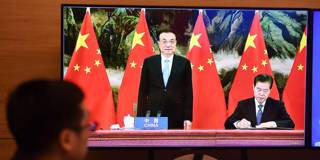America and other countries have no right to obstruct China’s economic rise or dictate its development model. But US President-elect Joe Biden’s incoming administration can and should revise decades-old trade arrangements with China to take account of changed realities.
NEW DELHI – Once US President-elect Joe Biden’s administration has made the relatively easy decisions to rejoin the Paris climate agreement, remain in the World Health Organization, and attempt to reboot the World Trade Organization, it will confront three key foreign-policy issues. In order of importance, they are China, China, and China.
Biden’s dilemma is that China has become too deviant to cooperate with fully, too big to contain or ignore, and too connected to decouple from. So, what principles should govern America’s economic engagement with it?
Two decades ago, the United States and the rest of the world bet that China, as it became richer, would open up economically and politically, while remaining benign in its international conduct. Under the resulting implicit contract, embodied in China’s 2001 WTO accession agreement, the world promised to guarantee market access for Chinese exports; in return, China would make its economy more open and transparent, and play by international rules.

NEW DELHI – Once US President-elect Joe Biden’s administration has made the relatively easy decisions to rejoin the Paris climate agreement, remain in the World Health Organization, and attempt to reboot the World Trade Organization, it will confront three key foreign-policy issues. In order of importance, they are China, China, and China.
Biden’s dilemma is that China has become too deviant to cooperate with fully, too big to contain or ignore, and too connected to decouple from. So, what principles should govern America’s economic engagement with it?
Two decades ago, the United States and the rest of the world bet that China, as it became richer, would open up economically and politically, while remaining benign in its international conduct. Under the resulting implicit contract, embodied in China’s 2001 WTO accession agreement, the world promised to guarantee market access for Chinese exports; in return, China would make its economy more open and transparent, and play by international rules.